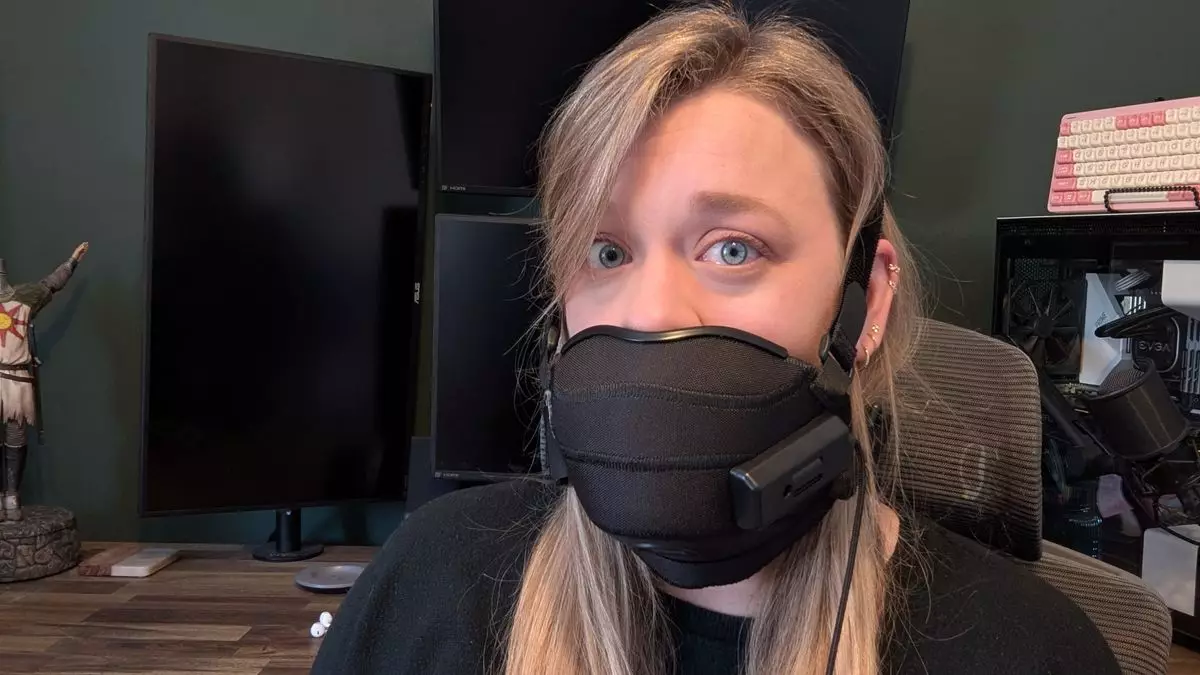Gaming has evolved from solitary activity to a shared experience, notably through streaming and multiplayer platforms that connect friends and gamers from all around the world. However, while technology has made it easier to connect and communicate, it has also generated a conundrum for those living with enthusiastic gamers. Enter the Metadox Ombra soundproof mask, an innovative product promising to muffle the boisterous exclamations of competitive gamers. As someone who has witnessed firsthand the auditory chaos that can come from intense gaming sessions, I decided to evaluate whether this sound-damping mask could truly bridge the gap between gamers and their cohabitants.
The Metadox Ombra comes equipped with a lofty promise: reduced noise levels during gaming nights. Priced at $139, the mask is no small investment. It includes a sound-dampening mask, a magnetically-secured microphone with a 3.5mm plug, wired earbuds, a splitter for mic/headset, and a secondary microphone enclosure for those who want compatibility with personal headsets. Fortunately, the setup is straightforward, allowing users to plug and play with minimal hassle.
Upon testing the mask, it became clear that it effectively muffles sound, with real-world reductions achieving a 20dB decrease in volume—a significant drop when you consider the sheer intensity of a gamer on a roll. Calls for backup in Rainbow Six Siege can be heard but sound as if they are echoing from a distance, offering a weirdly amusing aquatic quality to the gaming shouts. However, the sensation of isolation was palpable the moment my husband donned the mask. The idea of being “connected” through voice chat quickly became muddled as the mask distorted audio—transforming what should be tense coordination into a garbled series of muffled tones.
Moving beyond noise control, comfort is vital for any gaming accessory. While the straps of the Ombra fit comfortably and didn’t clash with glasses or over-ear headphones, the mask itself earned its share of critiques. Unlike lightweight medical masks, the Ombra is relatively hefty, designed to mitigate sound but at the cost of breathability. Wearing the mask became sweaty and constrictive, leading to a sense of frustration. After two hours, my husband sought respite, while I managed a mere 20 minutes—reflecting on the struggle of balancing sound control with personal comfort.
Moreover, the design—positioned below the nose—aggravated matters. Instead of freedom of breath, it felt like breathing into a pillow, fogging up the inside and creating pressure discomfort on the larynx. Such features can significantly detract from the overall gaming experience, causing more irritation than relief.
As I sat pondering the implications of the Ombra, I asked myself critical questions: Who is this mask truly beneficial for? In theory, a casual gaming couple or individuals living with roommates would gain some level of relief from the sound proofing capabilities. Yet, when diving deeper into social dynamics, I realized the mask might only be suitable for certain scenarios. If one lives in a shared space where noise might provoke complaints, the Ombra could cut noise while maintaining one’s competitive edge. But imposing a mask during casual gaming hangouts—where laughter, cheers, and camaraderie should reign—seemed counterproductive.
The sound-muffling capabilities might well spare a roommate from late-night ruckus, but it can’t abolish all noise, especially not the signature claps of disappointment after a bad round. Noisy as the passionate gamer may be, they are also human and crave interaction beyond muffled directives and responses.
In the end, the Metadox Ombra soundproof mask presents itself as a fascinating concept yet struggles to fulfill its purpose in the real world. While it effectively lessens sound, the discomfort and audio distortion make it a questionable choice for avid gamers. Living harmoniously means respecting each other’s space and needs, and this mask might just take away more than it offers. Ultimately, while innovative solutions are admirable, when it comes to gaming and enjoying quality time with loved ones, sometimes a simple compromise or understanding can far outweigh the essence of wishing to silence the shouts of excitement (or frustration). Perhaps in future models, designers will find ways to enhance both soundproofing features and user comfort—striking a fine balance that allows gamers to shout in victory without leaving their companions longing for peace and quiet.

